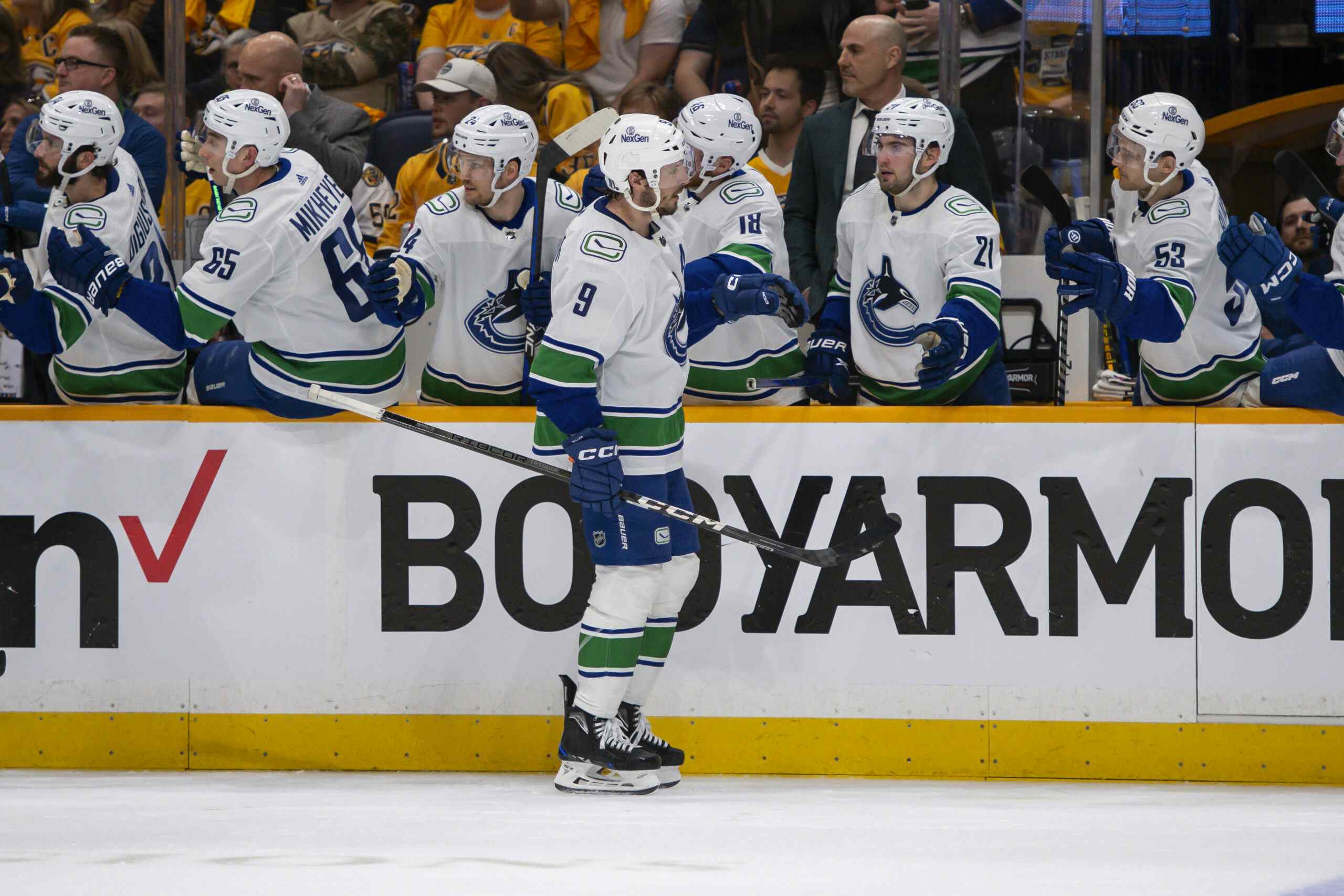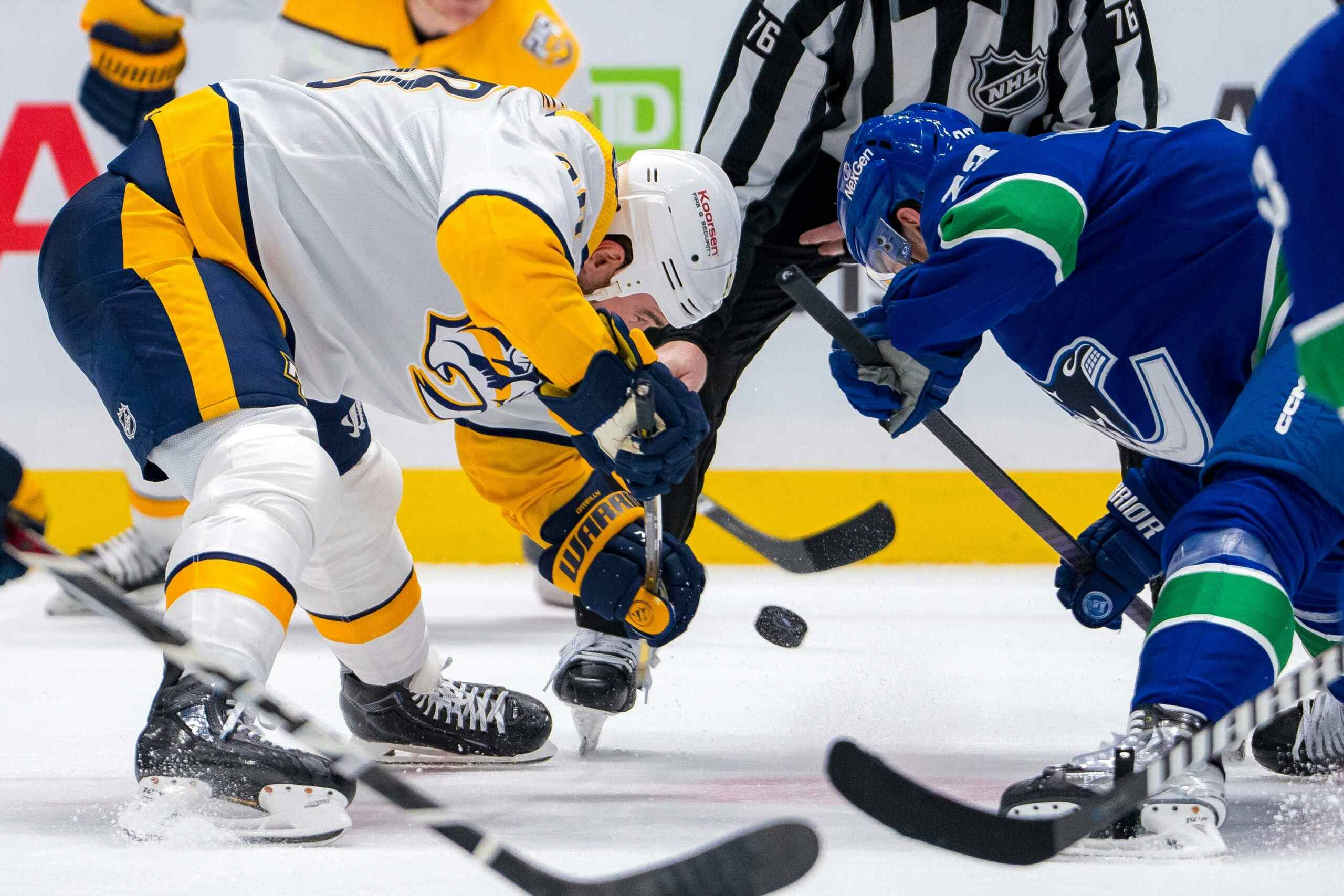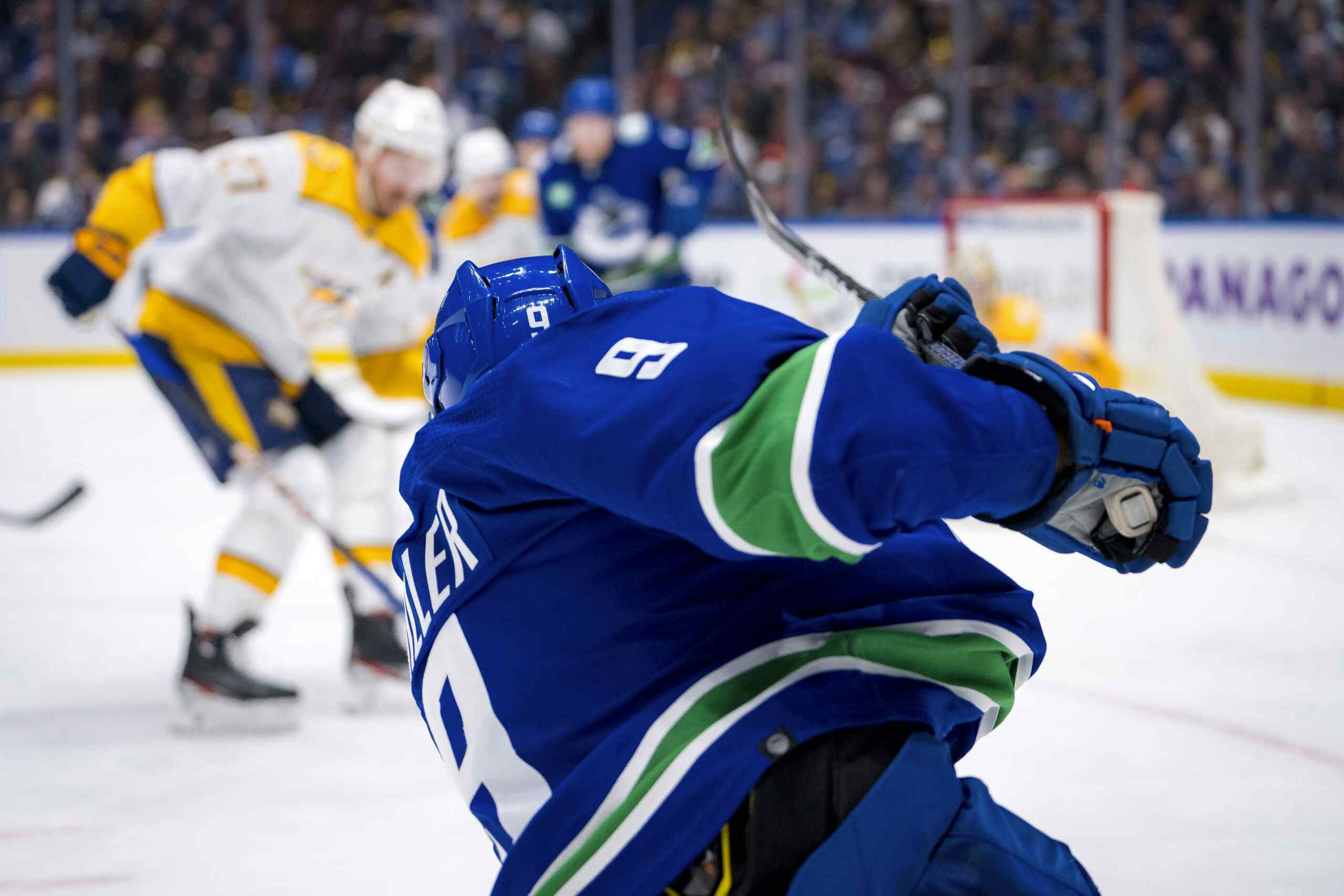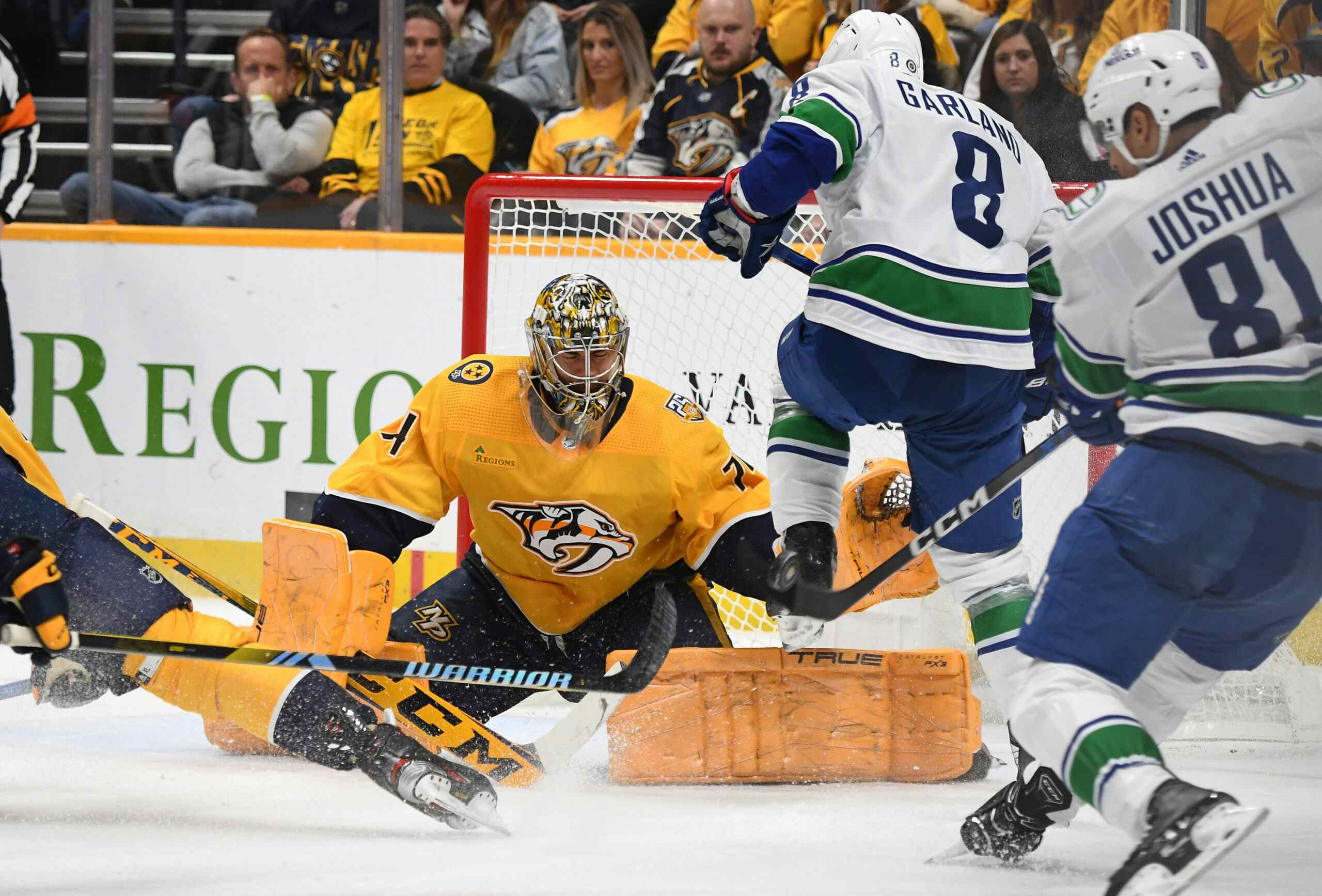Breaking down the two-horse Calder Trophy race

By Jason Jhutti
3 years agoWith the 2019-20 season now completed, Quinn Hughes has officially won the rookie scoring race.
For the third straight year, the Canucks will have a rookie in the Calder Memorial Trophy conversation — runner up Brock Boeser and reigning winner Elias Pettersson the previous years. In his first full year in the show, Hughes registered 53 points in 68 games and his 45 assists ranked first on the Canucks, tying forward JT Miller.
Hughes also made an impression as one of the league leaders among scoring defenceman, as he was tied for fourth in defenceman scoring and led all defenceman in points after the All-Star break. It’s safe to say Hughes will be atop of the defence scoring race for years to come with the numbers he produced in just his first year in the NHL.
When you take into account that Hughes was playing tough matchups defensively, it’s not crazy to think that he’ll likely be in the running for multiple Norris Trophies by the time his career is said and done.
Two-horse race
Hughes and Makar were the early favourites to take home the Calder Trophy, but Sabres rookie Victor Olofsson caught the oddsmakers off guard. Olofsson started the season on a tear, providing the Sabres with much-needed help upfront. However, after suffering an injury, his production dipped, and he never regained his early-season form. The talk then turned back to Hughes vs Makar.
One of Blackhawks’ forward Dominik Kubalik or Rangers’ defenceman Adam Fox most likely finish third on the voters’ ballot because the top two will certainly be Hughes and Makar. In what order? Well, that’s up for debate.
Both rising stars had tremendous seasons and we will likely be having debates about them about the Norris Trophy for years to come. Still, this season, one of them will win the Calder trophy.
As previously mentioned, Hughes has been relied upon since about November to play tough matchups, and on most nights, Hughes had more ice time than any Canucks’ defenceman. He finished the season first amongst Canucks’ defencemen for total ice time.
Makar, on the other hand, has a teammate in Nathan Mackinnon who is in the conversation for the Hart trophy. Makar also isn’t relied on as heavily to play big minutes, meaning the value that Hughes brought to the Canucks was arguably greater than what Makar brought to Colorado. Overall, with the likes of Gabriel Landeskog and Mikko Rantanen, Makar simply plays on a better team. Makar ranks fourth amongst Avs defencemen for total ice time, but also missed 12 games due to injury.
The case for Hughes
“I think Hughes’ overall two-way impact on his team and the value he provided to a club that lacks the overwhelming weaponry that the Colorado Avalanche have patiently and impressively assembled over the past few years was greater. Hughes should still win for the simple reason that he’s had a much larger two-way impact than Makar has.”-Thomas Drance of the Athletic
Hughes plays and is called upon in mostly all situations while having tough matchups against the other team’s top players. Before Hughes arrival in Vancouver, the power play wasn’t the best. The two seasons before his arrival, the man advantage unit was at 21.5% in 2017-18 and 17.1% last season. This year with the help of Hughes, the power play ran a rate of 24.1%, which was fourth-best in the league. Having Hughes manage the point has benefited the power play greatly, giving it an entirely new dynamic thanks to Hughes’ ability to walk the line with ease.
The team’s goals took a step up as well going from 2.67 to 3.25 per game, which suggests that the stud d-man is something that this team has been missing for quite some time — a puck-moving defenceman who can generate offence from the backend.
Comparing the two, we see the smallest of margins — they both excel in the new age of defenders. When we look at their overall Corsi percentages, Hughes has the slightest of an edge with 52.33% opposed to Makar’s 52.64%.
53 points this season gave Hughes the 5th most points in a single season by a rookie defenceman younger than 21 years old. The numbers that Hughes was producing are not only above every other defenceman in his draft class, he’s just the third defenceman to lead rookies in points in the last 80 years.
We know the award isn’t whichever rookie has the highest points its awarded to “the player selected as the most proficient in his first year of competition in the National Hockey League.”
With that definition, Hughes checks all the boxes.
He makes transitions look seamless, and the way he positions himself to retrieve the puck seems as if it was a wily vet who’s been doing it for years. There’s no question that Hughes had a more significant impact for his team out of any rookie this season.
For the second straight year, the Calder should rightfully be taking residency in the Pacific Northwest.
Recent articles from Jason Jhutti




